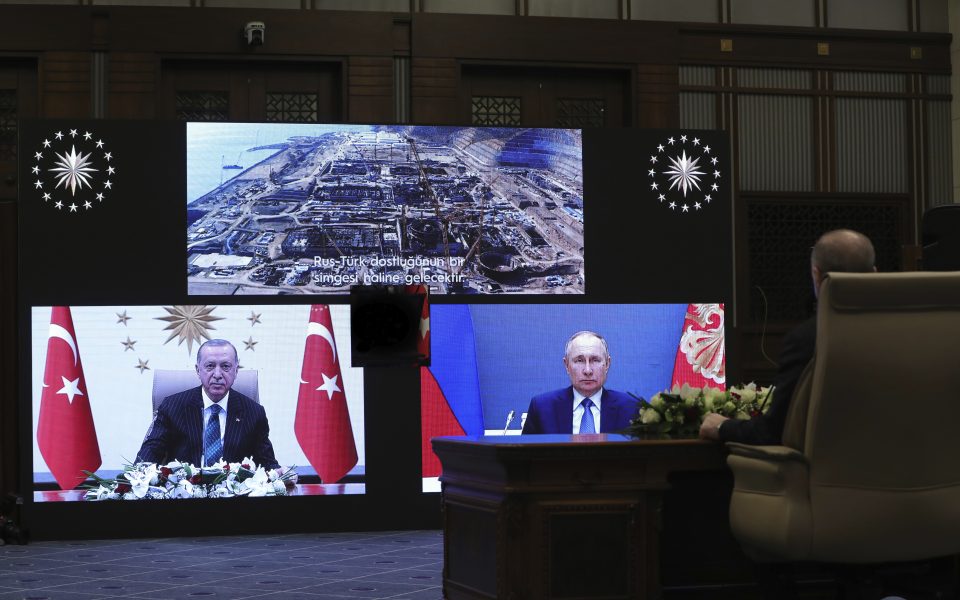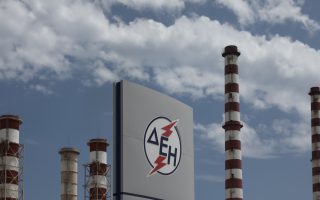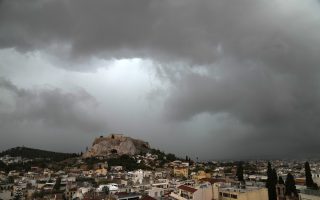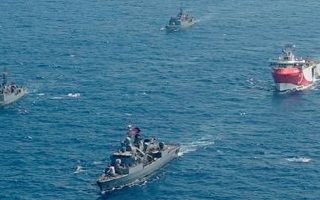Turkey’s nuclear plans threaten East Med ecosystems

Turkey has had plans to establish nuclear power plants since the 1970s, and these plans have become a key aspect of the country’s goal of economic development and growth. The Akkuyu Nuclear Power Plant (ANPP) is the first. Turkey and Russia ratified the agreement to construct the plant in May 2010. The agreement indicated that Akkuyu NGS Elektrik Uretim Corp, a subsidiary of Rosatom, would construct, own and operate the plant. The nuclear power plant is to comprise four reactors. While the major construction activities began in March 2018, the first reactor unit is expected to be operational in 2023 and the remaining units in 2026. Once complete, the plant is seen covering 10% of the country’s total electricity supply. Turkey also intends to build two nuclear power plants on the Black Sea coast to meet energy demands. Although the plants would give the country clean energy and make it energy-independent, there are numerous negative environmental effects associated with the generation of nuclear energy, and these pose a threat to Turkey’s neighboring countries as well as Turkey itself.
Nuclear is considered a clean source of energy because no carbon dioxide is emitted during operation, however, all activities related to building and running a plant lead to the production of high amounts of CO2, including the current construction and plant development processes at Akkuyu. Additionally, the plant will use uranium as its main source of fuel, whose extraction processes release great amounts of CO2 into the atmosphere. The power plant is located close to the Eastern Mediterranean, a region which comprises a vast set of coastal and marine ecosystems that deliver valuable benefits to all its coastal inhabitants. The region is set to experience negative environmental changes because of the huge amounts of water that will be required to cool the plant’s reactors. Pumping the seawater used to cool the four reactors back into the sea could lead to an 80% increase in water temperatures (2 to 5 degrees Celsius). The temperature rise would affect the area’s marine diversity. Environmentalists expect a decline in the number of fish because the high temperatures would probably kill most of them and reduce the egg-laying capacity of the rest. The high temperatures will also make the marine environment uninhabitable for a colony of Mediterranean monk seals and a very rare species of sea daffodil (Pancratium maritimum).
ANPP will affect countries around Turkey, especially Cyprus and Greece. Greece has already raised the alarm due to the lack of significant evaluation of the project and any protective measures for the environment and its neighbors. In fact, there were claims that the evaluation process for the plant was never concluded in Turkey. It is said that the government was influenced to hasten and conclude the evaluation process to favor its establishment in the specified site, which many consider unsafe because of the seismic activity in the area. The European Parliament has called on the Turkish government to halt construction of the plant, citing the location of the construction site in a region prone to severe earthquakes. According to the European Parliament, the location of the site in a region prone to earthquakes poses a threat to Turkey and the entire Mediterranean region. The facility is situated 16 miles from the Ecemis fault line at the meeting point of the Eurasian and African tectonic plates. The fault was initially believed to be inactive when the nuclear plant’s site license was issued in 1976. However, scientific studies published in recent decades have shown that the fault is active. A nuclear engineering professor from an Istanbul university, one of the original nuclear engineers who signed the site license in 1976, indicates that the current construction is based on ignorant planning and may pose a considerable threat to the Mediterranean region. He argues that the condition of the area has changed, and the threat of earthquakes needs to be assessed before proceeding with the projects. The location of Turkey in the highly seismically active region and recent cases of devastating earthquakes in the country supports the arguments of the European Parliament and the professor. A strong earthquake could result in devastating effects like the Fukushima disaster in Japan. In the latter case, the tsunami surged over the plant’s defenses and flooded the reactors, sparking a major disaster that led to the displacement of 150,000 people. The explosion also injured at least 16 workers, with dozen more exposed to radiation during the cooling of the reactors.
Similarly, Cyprus is concerned about the consequences of a possible nuclear accident because it is within the vicinity of the project and is likely to feel the radioactive consequences directly in case of such an event.
So far, no consultations have been held with neighboring countries. Commenting on the issue, a representative of the European Commission indicated that Turkey was not a party to international conventions, requiring countries to consult their neighbors over the environmental effects of major projects. The EU representative emphasized that Turkey is expected to align its legislation with EU requirements on such projects.
Turkey became a signatory to the Treaty on the Non-Proliferation of Nuclear Weapons in 1980 and a signatory to Comprehensive Nuclear-Test-Ban Treaty in 2000. It is also a party to the convention of nuclear safety which came into effect in 1996. The treaties regulate nuclear energy production. The country’s desire to develop nuclear power is also controlled by its membership in NATO, which requires non-proliferation of nuclear arms. Despite being a member of NATO, Turkish President Recep Tayyip Erdogan doesn’t seem to be committed to non-proliferation. In his address to the UN General Assembly in 2019, Erdogan said, “The position of nuclear power should either be forbidden for all or permissible for everyone.”
But the greatest concern in the development of ANPP is radioactive waste in the East Medn region. Turkey has not yet signed the Joint Convention on the Safety of Spent Fuel Management and on the Safety of Radioactive Waste Management which came into effect in June 2001. Burying radioactive waste in the region would make it uninhabitable and in the event of an accident, the radioactive leak would be catastrophic to the environment. Local observers have already raised these issues. The observers argue that there has not been any clear explanation as to how Rosatom will dispose of the radioactive byproduct material generated by the nuclear plant. They fear that the site may even become a Russian nuclear dumpsite.
In conclusion, the nuclear project is a threat to Turkey and its neighbors. Its location in earthquake-prone areas and its anticipated negative environmental impact mean that the international community should put it on hold until a further assessment is carried out to determine its environmental viability. The project should be placed on hold because Turkey is not a signatory of international conventions and hence not obliged to consult with neighboring nations. The lack of consultations means that Turkey does not adequately account for the negative externalities arising from the plant on neighboring countries such as Greece and Cyprus. Further assessment is needed to determine the effect of the plant on marine life and the potential negative effects owing to the vulnerability of Turkey and the Mediterranean region to earthquakes. The project was initiated and started even before a full commission and evaluation had been done and Turkey’s energy policies and prospects have a short overview, increasing the likelihood of an accident or lack of appropriate measures to contain any accidents in the region. The international community should take a strict position vis-a-vis the project, asking for close and consistent monitoring of all the nuclear development activities and future operations of the plant.
Elias G. Hadjikoumis is a foreign, security and defense policy expert and a member of the International Institute for Strategic Studies.





